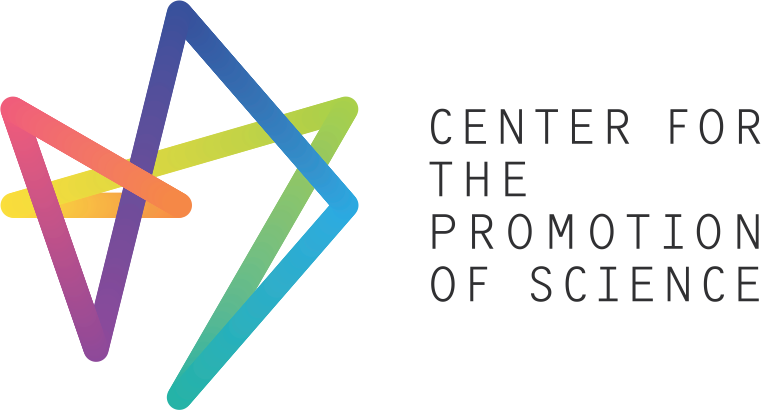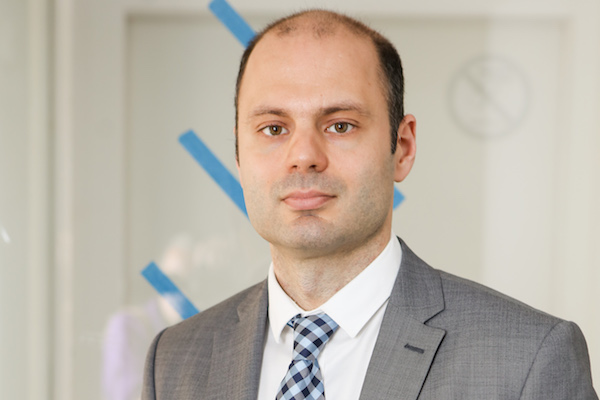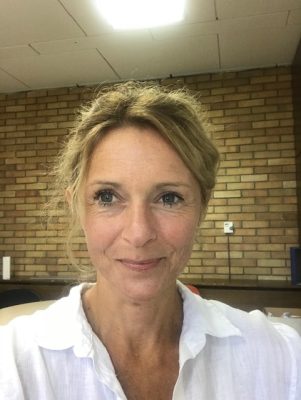Keynotes speakers
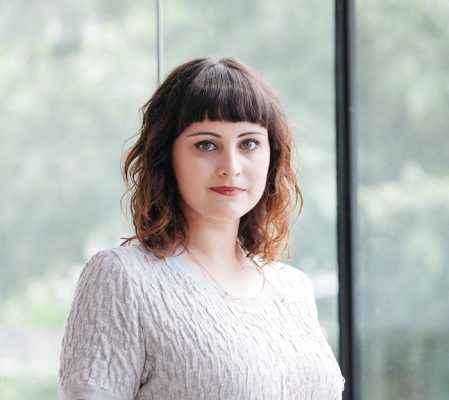
Mairéad Hurley
is an Assistant Professor in Science Education at the School of Education, Trinity College Dublin. Her research interests lie at the intersection of science education, communication and public engagement, with a particular focus on non-formal learning environments that connect the STEM disciplines with the arts. She was the Principal Investigator of the European Commission-funded project SySTEM 2020 which examined science learning outside the classroom in 19 countries across Europe (2018-2021). She holds a PhD in astronomy and has experience as a teacher of secondary school science and mathematics.
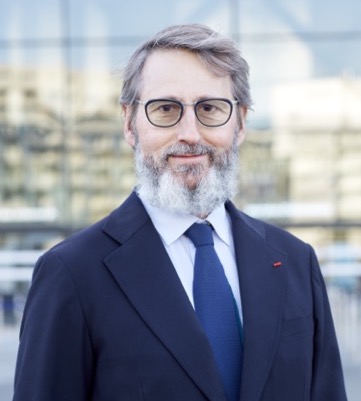
Bruno Maquart
is the chairman and CEO of the Universcience, the first French public institution for the communication of scientific and technical culture, comprising the Cité des sciences et de l’industrie and the Palais de la découverte, both in Paris. He’s also the current president of the ECSITE, the leading European network of science centres and museums. Bruno graduated from the National Agronomy Institute of Paris-Grignon, followed by the Ecole Nationale d’Administration. For almost 30 years, his career has focused on two areas of public activity – culture and social affairs, being the Managing director of the Centre Georges Pompidou in Paris and the Louvre Abu Dhabi project in the United Arab Emirates.
Speakers

Adrienn Újházi
(1995, Novi Sad) completed her BA in 2018 and her MA in 2020 at the Academy of Arts in Novi Sad, Department of painting. As of 2021, she is an independent artist. Adrienn received several scholarships and awards also, actively participates in exhibitions, projects and collaborations, and her work has been shown at numerous museums and festivals. She is a member of Šok ZaDruga in Novi Sad, ReAktor Citizens’ Association and Union of Associations of Fine Artists of Vojvodina. Her latest project was BIOFABRIKA/BIOFACTORY, which was supported by the European Capital of Culture Novi Sad 2022.

Andreja Bačnik
is a senior consultant for chemistry at National Education Institute Slovenia (NEIS) and coordinator of STEM group. She is working on active teaching and learning approaches in chemistry (science) education (IBL, ; coordination and performing of different types of in service training for science teachers; preparing and implementing new curriculum etc. She was the leader of the development group for scientific literacy in the national project NA-MA POTI, an Slovenian expert in Thematic Working Group on Mathematics, Science and Technology (MST) Education and PLA, Education and Training 2020 by European Commission and she was involved in international projects as Scientix 2 and 3, ATS STEM (Assessment of transversal skills) etc.
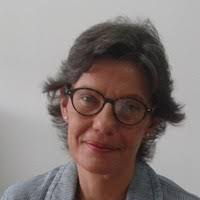
Biljana Kosanović
is an information specialist working at University of Belgrade, interested in and focused on Open Science policy and implementation. She has been serving as OpenAIRE national coordinator for Serbia since 2014 as well as coordinating a few groups and projects focused on implementing Open Science strategy in Serbia on national and institutional level.
During her career, she has established KoBSON (Serbian Library Consortium for Coordinated Acquisition) in 2002 and coordinated and developed it for the following 12 years; established DOISerbia project for assigning DOI to articles in Serbian journals in 2005; established National PhD Thesis Portal in 2013 and has helped with establishment and management of SCIndeks (Serbian Citation Index) since 1994.
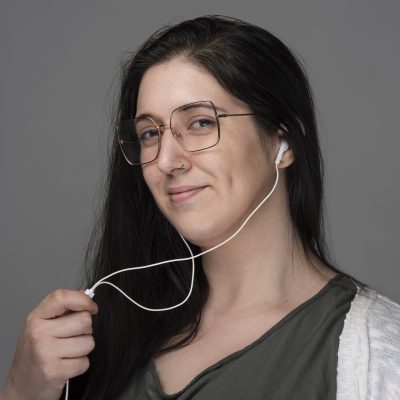
Carla Perucca Iannitelli
is the Policy Officer at Science for Change (SfC) based in Barcelona, Spain. She is the Project Manager of Step Change and European Citizen Science (ECS) EU-funded projects on the Citizen Science topics. She is also in charge of the policy part of NEWSERA, TRANSFORM and other EU-H2020 projects where SfC takes part.
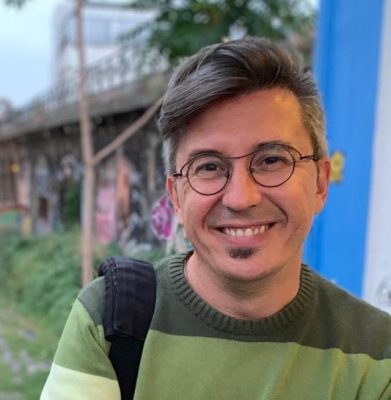
Dušan Mišević
is a Director of Research Affairs at the Learning Planet Institute (formerly CRI) in Paris. His background is mathematics and biology, with a splash of computer science. He is ever curious about evolution (especially of sex and cooperation), passionate about teaching and education, and engaged in citizen and open science. Scientist, mentor, teacher, communicator, organizer, problem solver, mixologist, bookworm, geek.
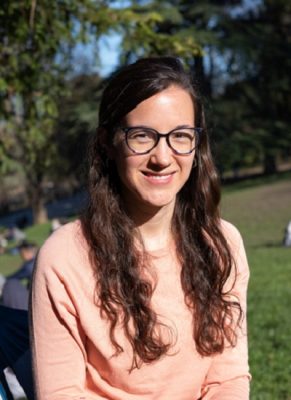
Eugenia Covernton
is the CEO of Lecturers Without Borders. She studied Biotechnology in Argentina and Science Management in South Korea, before moving to France in 2014 for a PhD in Virology. She is fascinated by viruses, but her true passions are education and science communication. She does teaching and coaching for researchers on science communication and outreach.

Jelena Mucić
Pedagogical advisor Jelena Mucić works as a chemistry teacher in primary schools „Jovan Dučić” and “Mladost” and has extensive work experience. As an external associate, she cooperates with ZUOV and ZVKOV. She has published several professional and scientific papers in the field of chemistry teaching and pedagogy, for which she has been awarded. She is the co-author of the Collection of tasks for the final exam in elementary education. At seminars she regularly improves her skills and collaborates with colleagues from the country and abroad in numerous projects.
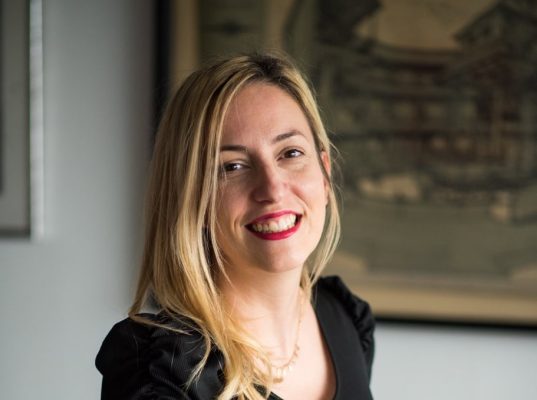
Jovana Karaulić
is employed at the Faculty of Dramatic Arts, Department of Management and Production and is an active member of the Laboratory of Interactive Arts, as well as a member of the IETM network, where she participates in the work of the group for Immersive Art, as well as the IFTR network. She participates in the Faculty of Dramatic Arts cooperation projects supported by Creative Europe.
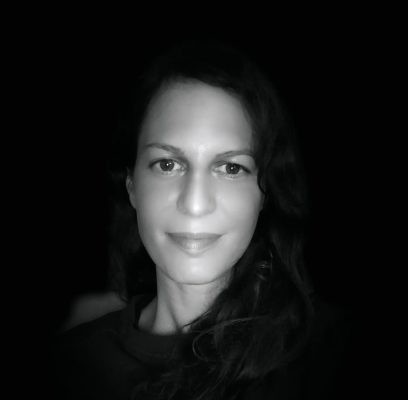
Kaja Damnjanović
is an assistant professor and research associate at the Faculty of the Philosophy University of Belgrade. The scope of her research is in the field of psychology of human rationality and biased reasoning. She received the award for the popularisation of psychology in 2022, from the Serbian Psychological Association.
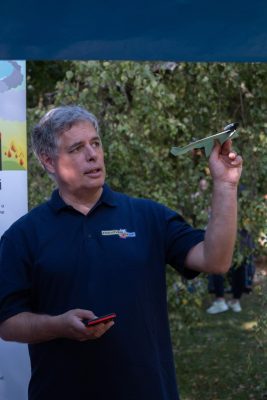
Krešimir Čanić
has had a multifaceted career, having worked as a marketing manager, physics laboratory demonstrator for computing students at the Split University, grammar school physics teacher, creator and director of a number of science popularization events in Croatia and abroad, and Školska knjiga’s advisor for EU projects in education. He is active in several associations in a variety of fields and is a member of the Croatian Government’s Council for Civil Society Development in Design and Technology and a Member of the Management Board of the National Foundation for Civil Society Development. As an active participant in global science communication, three years ago he joined the Management Board of the Beijing Global Network of Science Festivals as one of its founders.
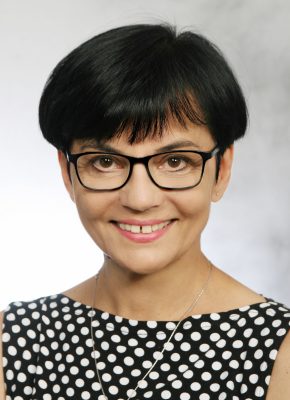
Marija Jevtić
Full professor at the University of Novi Sad, Faculty of Medicine, a specialist in Hygiene and medical ecology (Public Health) at the Institute of Public Health of Vojvodina Research collaborator at the Université Libre de Bruxelles, Research Centre on Environmental and Occupational Health, School of Public Health. Associate member of the Academy of Medical Sciences Serbian Medical Society. − Group analytic therapist and System Psychodynamic Organizational Consultant. − President of the Environment and Health Section European Public Health Association (EUPHA), − EU Climate Pact Ambassador
− ENBEL (Enhancing Belmont Research Action to support EU policy-making on climate change and health) – Member of Advisory Board (HORIZON 2020) https://www.enbel-project.eu/people

Miroslava Nikolić
is ICT teacher in Gymnasium Patriarch Pavle, with over 30 years of experience. Member of Oracle Academy, Selfie project, Scientix, STEAM etc. Awarded in the country and abroad. She is coauthor of 3D Printing Student’s company logo project, Erasmus+ Project Team member responsible for ICT support.
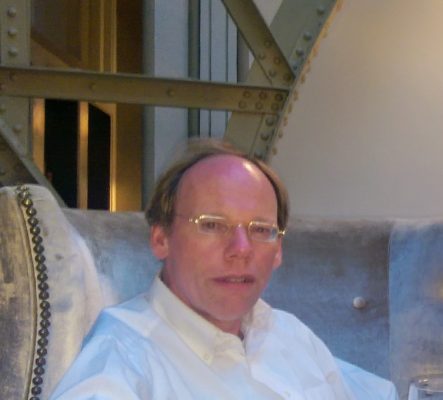
René von Schomberg
was at the European Commission from 1998 – 2021. He is currently a senior research fellow at RWTH university of Aachen and also a Guest Professor at the Technical University of Darmstadt. He is the first editor of the most comprehensive book on responsible innovation to date: The International Handbook on Responsible Innovation. A global resource (Edward Elgar, 2019) He runs a blog with open access publications:.https://renevonschomberg.wordpress.com

Snežana Bogićević
works as a mathematics teacher at the elementary school “Jovan Dučić” in New Belgrade. She graduated from the Faculty of Mathematics at the University of Belgrade. She has been working as a primary school teacher for 17 years. She gladly cooperates with colleagues of related and different subjects. She worked as an external associate of ZUOV. She is an evaluator, reviewer and co-author of accredited mathematics textbooks for elementary school, as well as professional papers.

Zoran Tomić
was born in Kruševac in 1988, where he completed primary and secondary school. In Niš, he completed his undergraduate and master’s studies at the Faculty of Economics, where he is currently a PhD student. He has been promoting science and astronomy since 2005, when he attended an astronomy course at SC Petnica. He became a member of AS Alpha, where he built an astronomical observatory. He founded the AS “Eureka” in 2010, whose president he was until 2020. With the support of CPS he built the AO “Šarengrad” and is active in the field of astronomy promotion. Currently he is MP at the National Assembly of the Republic of Serbia.
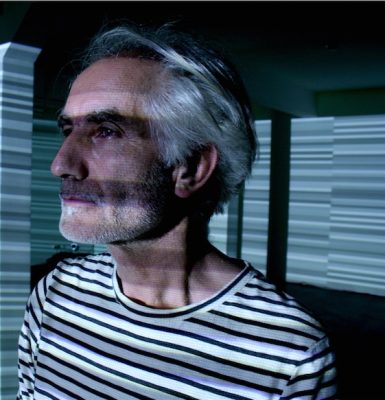
Werner Jauk
Director of Ars Electronica Research Institute „auditory culture“ He did his Phd in psychology (musical cybernetics, information theory and aesthetics), postdoctorial studies at the IRCAM-Paris and his habilitation in pop / music & media / art always focusing on auditory perception and its mediatisations as cultural processes in media cultures. His interdisciplinary scientific research has been published in international journals and congress papers; projects between science and art are part of media art festivals. This interdisciplinary work led to the establishment of the MA-study focus „pop music and media culture“ and to the establishment of a transmedial research institute „auditory culture“ at Ars Electronica.
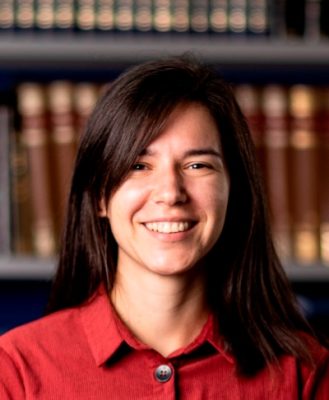
Aleksandra Kulić Mandić
Research Assistant at the Faculty of Sciences, University of Novi Sad, Serbia. Works at the Chair of Chemical Technology and Environmental Science as a member of the Wastewater treatment group. The first attempt in science communication through illustrations was for “A Collection of Tasks for the Environmental Protection Entrance Exam” book. Illustrations were prepared as visual add-on and at the OpenSciComm conference will be presented a poster summary.
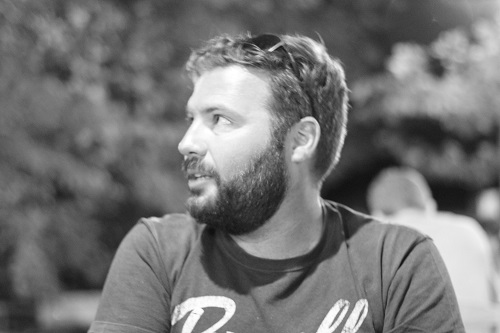
Asimakis Talamagas
has graduated from the Dpt of Biology (NKUA) and completed his M.Ed. “Biology Didactics” in the University of Athens. He is completing his PhD thesis on in the Dpt of Primary Education (NKUA) and is an active Biology teacher for 14 years in Secondary Education. His field of research is Pseudoscience and Teacher’s Education and has developed several edutainment activities as an alternative way to teach Biology.

Biljana Mijailović
is a history teacher in Third Belgrade Gymnasium, with over 30 years of experience. She has published several professional papers in the field of history teaching and pedagogy. She is a leader of Italian bilingual sector and she organized and conducted many international projects. She is coauthor of project ‘’us and them, before us’’ which deals with teaching about WW2 and Culture of remembrance.
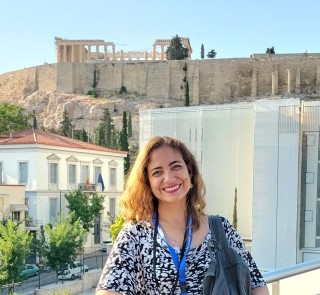
Claudia Aguirre Rios
Mining engineer and MsC in Science communication. For ten years, she worked as Director of Contents and Education at Parque Explora, a science center in Medellin, Colombia. For 4 years she was Coordinator of the Andes node of the Latin American Network for Popularization of Science and Technology. 5 years ago, she moved back to France and had worked for a European project (PERFORM), a science center (Exploradome) and as project manager at TRACES where she recently became director. She organized and participated in International Science Theatre Festivals, Public Engagement with Science Conferences, Public Engagement with Science and Science Communication Congresses. She has coordinated several collective books in Science Theatre and Science Museums.

Dušan Pavlović
is an experienced scientific educator and a science communicator. For years he has been part of the well known Petnica Science Center in Serbia, an independent and nonprofit organization for extracurricular, formal and informal science education. Dusan also has extensive experience in radio production as the author and the editor of the radio/podcast show Radio Galaxy. He deals with science journalism in a radio format, and has experience with other forms of science journalism as well. Dusan studied astrophysics and works as a Data Scientist at Quantox Technology company.
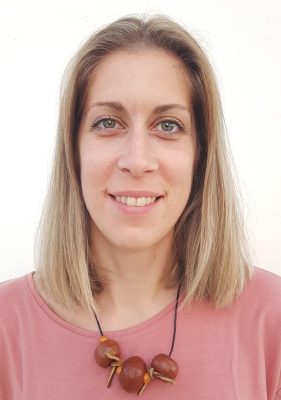
Ivana Šeparović
comes from the island of Lošinj, Croatia, where she works at the Blue World Institute. With her bachelor’s degree in social work she is in charge for the projects of sustainable development of local community with the emphasis on tourism and she works as an educator with the groups of children and youth. Currently, she is finishing bachelor’s degree in social policy and coordinating activities of two projects funded from European Social Funds and Horizon 2020 programme.
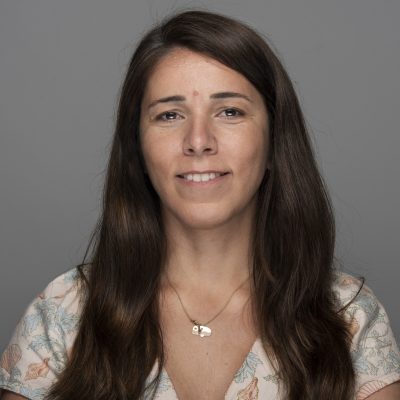
Joana Magalhaes
is a Senior Researcher and the Project Coordination Manager of NEWSERA at Science for Change. She holds a PhD in Biochemistry and Molecular Biology and has more than 15 years experience in health sciences, science communication through media from a gender perspective and public and patient involvement. She is a Numerary Academic at the Galician Academy of Portuguese Language, and a Board Member of the Association of Women in Science and Technology and the Galician Association for Science Communication.

Katarzyna Świerk
graduated in chemistry at the University of Gdańsk, Doctor of Chemistry. Since 2015 the Head of the Research and International Cooperation Office. Hitherto she has been dealing with the theoretical and practical problems of higher education, its structures, organization and obtaining academic degrees. Certified auditor of the European Union in the field of HR Excellence in Research and Horizon 2020.
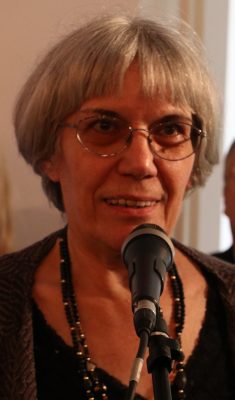
Ljubica Beljanski-Ristić
Graduated Yugoslav literature and the Serbo-Croatian language from the Faculty of Philology in Belgrade. Since 1977 she had worked in the Cultural Centre “Stari grad”, where she has initiated innovative, creative and interactive projects for children and youth, gathering and providing support to young professionals and artists to engage in through practice and practical research projects. In 1999, she founded the Centre for Drama in Education and Arts CEDEUM (National Centre of International Association for Drama/Theatre and Education IDEA). In 2000, she designed the concept of Bitef Polyphony, the side program of the Belgrade International Theatre Festival of new theatre tendencies Bitef. She is currently an external consultant within the „Cultural Participation and Cultural Heritage“ project realized by the Institute for the Study in Cultural Development of Serbia.
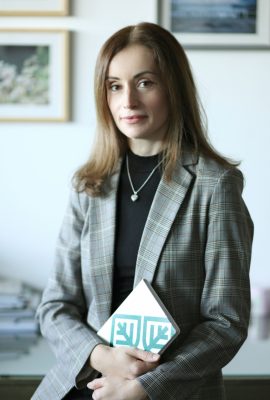
Ljiljana Rogač Mijatović
Phd, is Associate Professor at the University of Arts in Belgrade, Faculty of Dramatic Arts. She holds a PhD since 2012 at the University of Arts in Belgrade in international cultural relations. Her research interest includes cultural diplomacy, cultural policy, and science policy. She is a member of the Scientific Council of the Fund for Science of Serbia and EU COST Actions Review Panel Member.
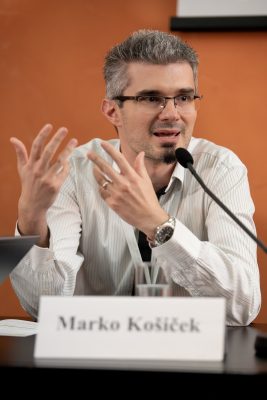
Marko Košiček
Ruđer Bošković Institute (RBI), biochemist, professional consultant and coordinator of popularization activities at RBI. He received his PhD in biochemistry from the Faculty of Natural Sciences in Zagreb. He participated in numerous science popularization activities (Festival of Science, Scientific Picnic, RBI Open Day, European Researchers’ Night), hosts the science show Third Element on Croatian National TV (HRT3), established Society for Out-Of-Frame Education, and was a long-time member of the organizing committee for the Summer School of Science for high school students. Together with his colleague Saša Ceci (RBI), he was awarded the State Award for Popularization and Science Promotion in 2014.
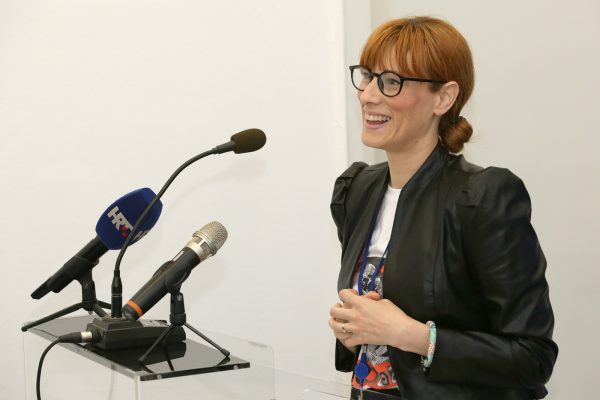
Petra Buljević Zdjelarević
Ruđer Bošković Institute (RBI), is a trained senior media and communications specialist with 13 years of experience in internal and external communications, reputation management, social media and media relations, event and project management. She works as the head of the PR office at the Ruđer Bošković Institute (RBI) and is responsible for strategic communications, reputation management, issue and crisis response, public affairs and media relations, including consulting and media training for RBI staff. She has experience as a communications consultant for various EU-funded projects, focusing on project branding and media campaigns to maximize project objectives. She is a member of the national communication teams for international science and research projects such as EUROfusion and AI4Health.Cro.
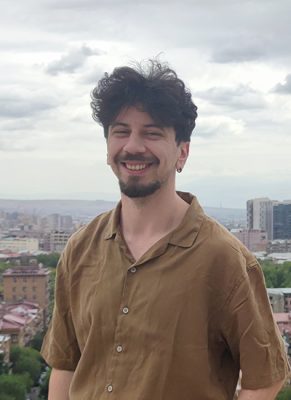
Tibi Puiu
is a science journalist from Bucharest, Romania. He is the co-founder of ZME Science, an international popular science website started in 2007 on a mission to bridge the gap between the latest research and the general public through compelling storytelling. ZME Science is now one of the most recognized dedicated science journalism brands to come out of Europe. Tibi usually writes about physics, renewable energy, space, and the climate, but he’ll dabble in a lot of things, from stories about resurrecting mammoths to the more recent Nordstream sabotage.
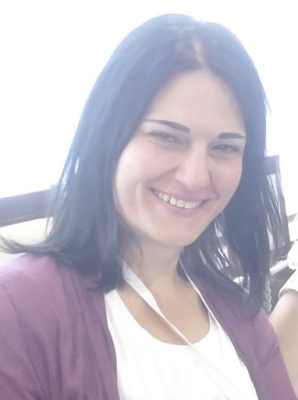
Vesna Kostić
is a history teacher at elementary school “Jovan Dučić” in Belgrade with over 20 years of experience. With her students she participates in international and national projects. She has published several professional and scientific papers in the field of history teaching and pedagogy, for which she has been awarded. As a pedagogical advisor she regularly improves her skills at international and national seminars. She is an external associate of ZUOV.
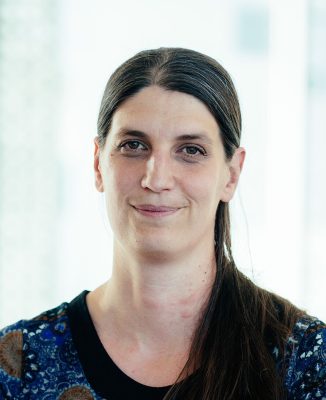
Vedrana Mikulić Crnković
is an associate professor of mathematics at Faculty of Mathematics, University of Rijeka. Her scientific interest is in the field of combinatorics. In addition to scientific and teaching activities, she is very active in science promotion and involved in several projects dealing with teaching of mathematics.
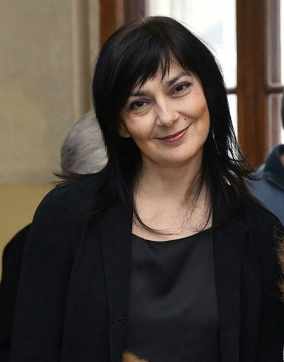
Zorana Matićević
sociology teacher is a senior pedagogical advisor and an external associate of MPNTR and ZUOV with over 25 years of experience in educational work. She was awarded in the country and abroad. She is author of several professional and scientific papers.
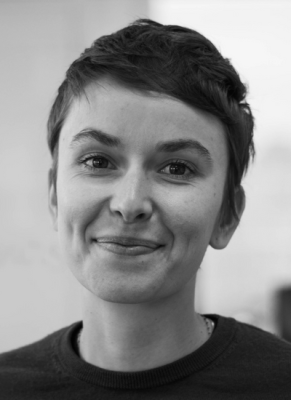
Alix Thuillier
MA in Science communication. She worked as Communications Officer and Science Engagement Project Manager for various education and research institutions in France and Israel for 6 years. In 2020, she joined Ecsite – the European network of science centres and museums – where she supports collaborative EU-funded projects in science education and societal engagement in their implementation, communication and dissemination activities.
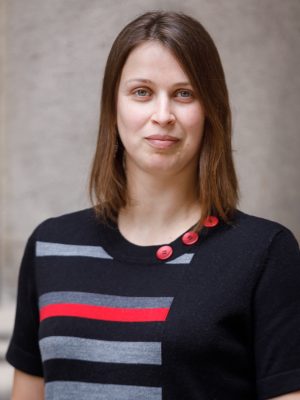
Barbara Heinisch
is a researcher and lecturer with a focus on translation studies at the Centre for Translation Studies at the University of Vienna. Her research interests include specialised translation, usability, accessibility, localisation, terminology and citizen science. She is co-developer of the Austrian Language Resource Portal. Her recent publications include a chapter in the book “The Science of Citizen Science” about the Citizen Humanities.
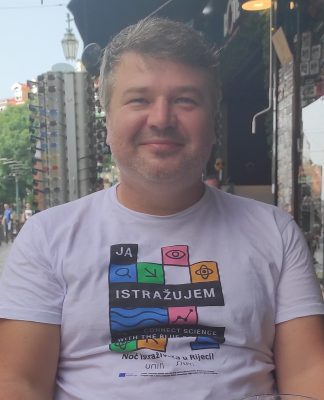
Bojan Crnković
is employed as an associate professor at the Faculty of Mathematics, University of Rijeka. His scientific interest is in the field of applied mathematics. He is the author of numerous lectures and workshops aimed at the popularisation of mathematics and has participated in the design and organization of several popularization projects and activities.

Dobrila Mocević
is a communications practitioner and a director of the PRIME Communications agency in Bosnia and Herzegovina. She deals with the creation and implementation of communication strategies for commercial clients, non-governmental organizations, domestic and international institutions. Dobrila strongly believes that education and media, information and scientific literacy as well as communication are of critical importance for improving both social and economic environment.
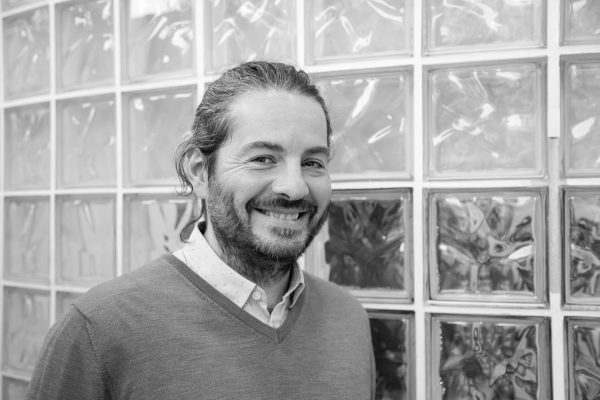
Dobrivoje Lale Erić
leads the Department of International Cooperation at Serbia’s Center for the Promotion of Science (CPN) since 2015. He’s been involved as an expert, work package leader or team member in numerous EU projects and initiatives dealing with science communication, research policies, STE(A)M education and art & science practices, with a focus on learning, climate and AI topics lately. He serves as a member of the Programme Committees at the Belgrade Open School and at the ECSITE association.

Eirini Chatzara
is a PhD candidate in the field of Climate Crisis and Public Understanding, at the National and Kapodistrian University of Athens. She received her first degree as well as a Master’s degree in Physics from National Technical University of Athens. She also holds a Bachelor’s degree in Pedagogy. After working as a STEM developer and educator in top EdTech companies in Greece and Cyprus, she is now a teacher in an Athens public school, where she seeks to infuse the coolness of physical sciences into day-to-day learning.
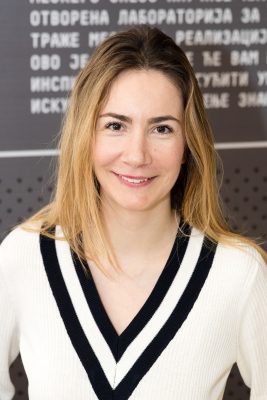
Jelena Joksimović
is a psychologist, researcher and activist in the field of education. She received her doctorate in psychology of education at the Department of Psychology at the Faculty of Philosophy, University of Belgrade. Her field of research includes: critical pedagogy; maker culture and education; quality of the teaching/learning process. She is a co-founder and an active member of the Škograd and works at the Center for the Promotion of Science as coordinator of educational programs.
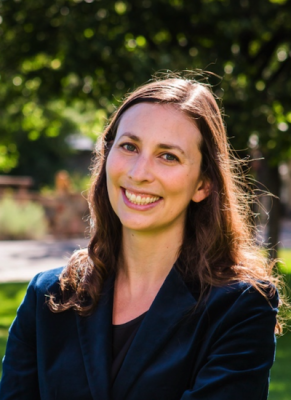
Joanna Gordon Casey
Ph.D, is an Assistant Professor of Physics and Engineering at Fort Lewis College, in the Four Corners region of the United States. She is serving the US Embassy in Belgrade as an Air Quality Fellow. Her research is focused on improving low-cost air quality measurement techniques, including measurements and analysis of greenhouse gas emissions. Before joining Fort Lewis College as a faculty member in 2019, Dr. Casey implemented the Ambient Air Quality Regulatory Monitoring Program for the Southern Ute Indian Tribe.
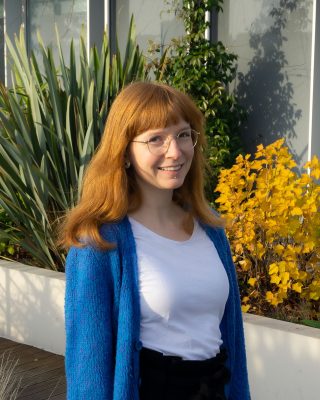
Katharina Kloppenborg
is a PhD candidate at the Learning Planet Institute of Université Paris Cité. Her research is about online tools for citizen science. More concretely, she explores how to design participation architectures that support projects and communities in examining their research and societal goals. With a background in cognitive science and user experience, Katharina cares about putting the human in the center of the design process, privileging participatory approaches.
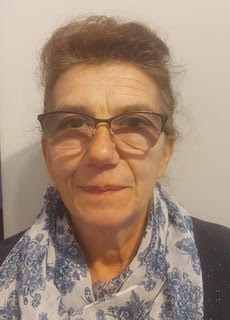
Maja Nikolova
I graduated and past master’s degree on the Faculty of Philosophy in Belgrade, group for pedagogy. I worked for several decades at the Pedagogical Museum in Belgradelike a museum adviser, where I realized dozens of exhibitions in the field of school history and contemporary topics. My personal interest was the work of Serbian schools abroad. Now, I am doing research in the field of children’s holidays in Serbia from the middle of the 19th century until today. Within that topic, I am especially interested in the transformation of the New Year’s Eve and the attitude towards Santa Claus and the differences of that in the capitalist and socialist society. The book Robotic Education was published in 2019, and after that I wrote several articles, including Positive impact of migration in the field of education, Children of German nationality in orphanages in Serbia in the period after the Second World War, Education of Serbian theologians in England during the First World War.
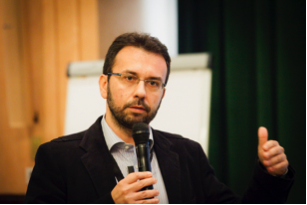
Menelaos Sotiriou
is a science writer and communicator (background Applied Mathematics) with 20 years of international work experience. He is holding a Master in Total Quality Management and currently he is working in the field of science communication. His main research focus is on the communication of scientific research to the wider public. A special interest is in the Education field where he has realized numerous projects (National and International) and more specifically in the development of self-reflection tools measuring the innovation and e-maturity of school units.
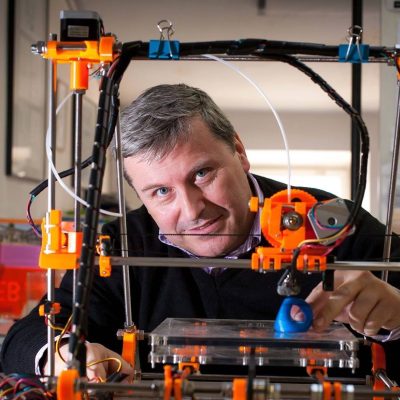
Roberto Vdović
MSc, M.Arch. is an architect, researcher, educator and entrepreneur. He has been a pioneer of digital technology research and implementation in the field of architecture since 1987. He is the President of FabLab Croatia. As a project manager or national coordinator he is involved in several European projects. He is producer of the Maker Faire Zagreb since 2019. Inspired by experience from projects he initiated in 2019, Adriatic GreenLab, an initiative to establish a center where innovative and creative people can responsibly contribute with accessible and inclusive solutions for real-life problems in remote areas. In 2020 he became Head of the Research, Development and Innovation Department at the Faculty of Architecture University of Zagreb.
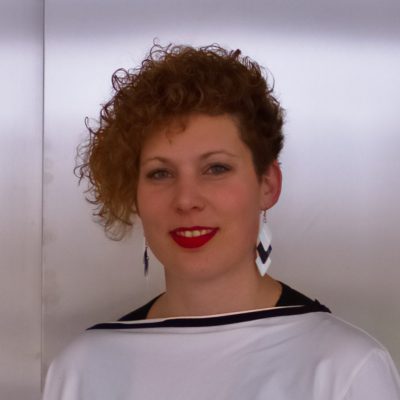
Tina Marković
is the manager of CARNET’s Helpdesk Service. She has many years experience in european project management as well as in activities that aim to popularize the implementation of ICT in education and the integration of innovative methods in learning and teaching. For the past five years, she has been leading the Scientix and “DOTS – Development of transversal skills in STEM” projects, through which science subjects are promoted and aspire to create a community of practicing STEM teachers in EU member states. Tina is a member of the program committee of the Scientific Picnic, in which CARNET has participated since 2015 as co-organizer. In the EU project “e-Schools – Development of a system of digitally mature schools”, she leads activities related to the strengthening of the Community of Practitioners, which include the design and organization of regional meetings and the arrangement and equipping of Regional Education Centers (ROC) in 15 schools. She graduated from the Faculty of Economics in Zagreb, majoring in Business Informatics. Also, she graduated from CARNET’s E-learning academy and obtained a project manager’s license.
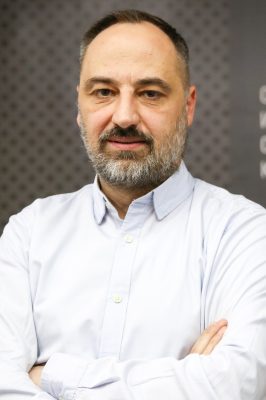
Vladimir Đurđević
is a full professor of meteorology at the Faculty of Physics, University of Belgrade, Serbia. During his career, he was also a visiting scientist at the NOAA (USA) and CMCC (Italy). His expertise is in the field of climate modeling, climate data analysis, climate impacts, vulnerability and adaptation to climate change. Beside his career in education and science he regularly participating in different public events dedicated climate change.
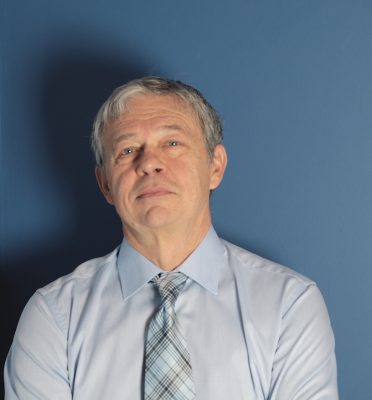
Vladimir Janković
specializes in the history of modern science and atmospheric humanities. He has published extensively in the history and social studies of meteorology, climate change, environmental medicine, and urban climate design. His has been funded by the Wellcome Trust, ESRC, AHRC, NSF and the Brazilian Ministry of Science. He served as President of the International Commission on History of Meteorology and is currently the Chair of History Group of the Royal Meteorological Society. His research has been communicated in the media including New York Times, Spotify and Discovery Channel.
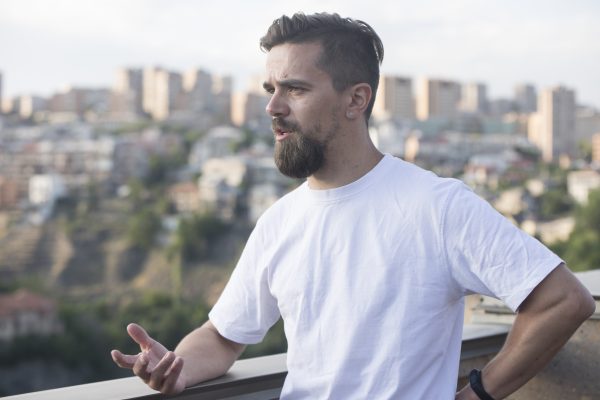
Alexey Pomigalov
had studied history of the XIXth century and worked in the conventional museums and exhibition projects (State Hermitage and Fabergé Museum).
In 2018 his interest in IT and science history shaped out and he started curating the IT Museum DataArt project. It had started with interest in the local ex-Soviet history of computing technologies but evolved into the exploration of the Eastern and Central Europe engineering culture as a social phenomenon.
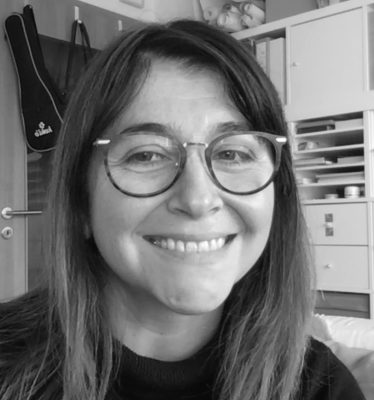
Andrea Troncoso
is a Project Officer at the European Science Engagement Association (EUSEA), based in Germany. Since 2015 she has been involved in several EU-funded projects related with RRI and Citizen Science, as a manager and a communications officer. Currently she is in charge of Communications in the IMPETUS project.
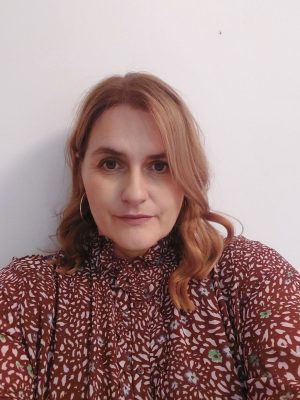
Barbara Pinculić
is Head of User Support at CARNET – Croatian Academic and Research Network. In the last 16 years, her focus has been on implementing projects of digital transformation in the primary and secondary education sectors. She led the e-Class Register project and has participated in a number of CARNET national projects for schools. In the e-School project, she works in supporting schools education system by providing a community for various practitioners. She is currently dedicated to leading teams in customer support and conducting in-house trainings in soft skills and organizational and personal development. She graduated in philosophy and croatology at the University of Zagreb and completed a series of educations in leadership, project management, business psychology, and human resource management.
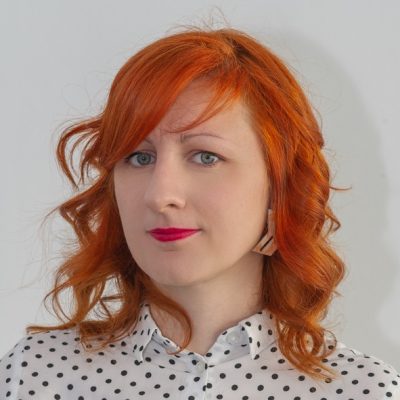
Bojana Dinić
research interests include psychometric and the exploration of the socially malevolent traits and outcomes. In 2020-2021 she was the PI of the project regarding risky use of social networks among adolescents, and she currently participates in several research projects which support open access policy. She has published about 80 papers, several monograph publications, the open textbook “Principles of psychological testing” and one test manual (TOI-SE).
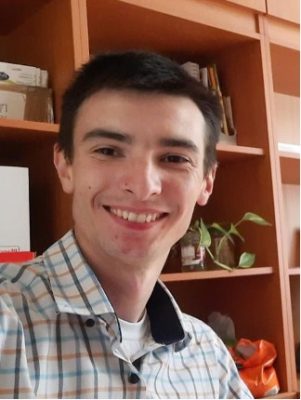
Đorđe Vojnović
is currently a PhD student at the University of Novi Sad at the Faculty of Agriculture. He is a teaching assistant in the scientific area of Field and Vegetable Crops, where he holds exercises in several undergraduate and master study courses. He is a researcher in growing vegetable crops, focused on studying the application of different biostimulants in vegetable production. In 2022 he was on a study visit to the University of Debrecen in Hungary. The same year, he improved his skills in the course and summer school on Ethics Integrity and Clean Energy and climate change solutions. He is the secretary of the Vojvodina Association of Vegetable Growers in Novi Sad and a member of the Serbian Genetics Society.
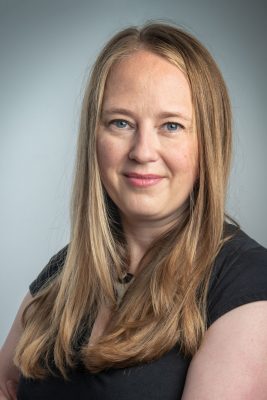
Elke Dall
is a sociologist by training working at the Centre for Social Innovation (ZSI) in Vienna, Austria. She is a member of several EU-funded projects dealing with Responsible Research and Innovation, citizen science, research and innovation policy as well as the inclusion of the Western Balkans in the European Research Area (WBC-RRI.NET, POLICY ANSWERS, Step Change).

Jelena Kalinić
is a biologist, science journalist, science communicator and science blogger with a MA iin comparative literature, based in Bosnia and Herzegovina. She writes about scientific developments for several media outlets and has been a participant in a number of panels and conferences on science journalism. In her career Jelena has founded a number of platforms dedicated to communicating science to ordinary people: a scientific portal and a YouTube Channel Quantum of Science, a website focused on informing citizens about vaccines, Vakcine.ba as well as The Society for the Promotion of Natural Sciences, ‘Science and The World.’ All these activities now work under the umbrella name of ‘Science is Talking.’ She reports on science in an interesting way, combats pseudoscience and fake news, especially the ones about vaccines, and communicates science to citizens, with a focus on young people. Jelena is also an advocate of strengthening scientific literacy. In 2022, she won 2nd place in the selection for European Science Journalist of the Year, organized by the European Federation for Science Journalism in Leiden, The Netherlands.
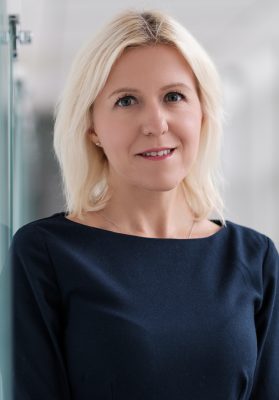
Joanna Morawska
holds a position of an adjunct at Adam Mickiewicz University, Poznań, Poland, Faculty of Human Geography & Planning. She graduated from political science and did her PhD in economics. She has over twenty years of experience in academia, administration, national & international project management. Her research interests are related to regional innovation (eco)systems, especially the new forms of innovation, including (digital) social innovation.
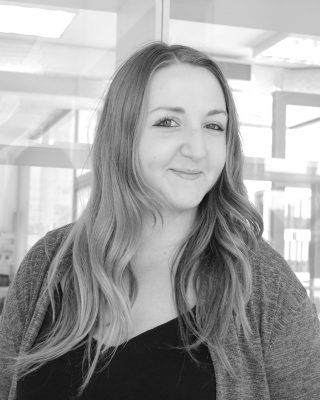
Kejt Dhrami
is a lecturer and researcher at POLIS University as well as Head of Territorial Governance and Spatial Planning Unit Co-PLAN, Institute for Habitat Development in Tirana, Albania. In the frame of the WBC-RRI.NET project, she implements an initiative in the Kune-Vain-Tale Lagoon which aims to apply citizen science practices in evaluating ecosystem services of this protected area in the context of increased vulnerability from climate change.
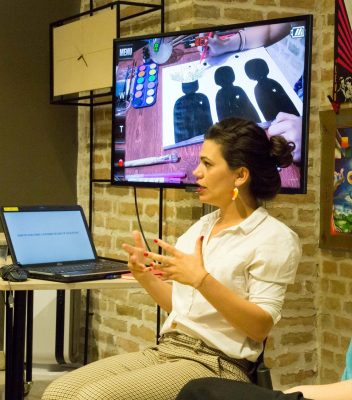
Maja Maksimović
is an Assistant Professor at the Department of Pedagogy and Andragogy at the Faculty of Philosophy of the University of Belgrade. At the moment, she focuses her research practice on the entanglement of the educational, activist, and artistic, trying to incorporate the critical, embodied, spatial and imaginative into a repertoire of action. Maja has intensive cooperation with NGOs, self-organized groups, and activist organizations, trying to build stronger links between academia and the civil sector, but also to explore public spaces as participatory educational sites. She is a part of ESREA steering committee and a co-convenor of the ESREA network Active Democratic Citizenship and Adult Learning. Maja is also a member of Škograd collective.

Maria Savanović
is a Research Assistant and PhD student in chemistry at the Department of Chemistry, Biochemistry and Environmental Protection, Faculty of Science, University of Novi Sad. Her field of research is closely related to the examination of the stability of pharmaceuticals and pesticides, as well as their removal from water using Advanced Oxidation Processes. She is the co-founder and board member of the Association for the International Development of Academic and Scientific Collaboration – AIDASCO (https://aidasco.org).
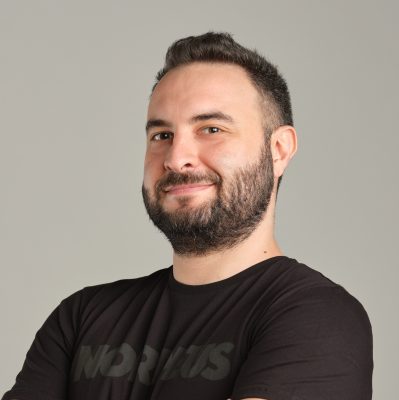
Miloš Đuričanin
Since 2018, as part of Nordeus, Miloš Đuričanin has been managing strategic initiatives aiming to improve formal and non-formal education, strengthen the gaming startup ecosystem and the business environment, with a special focus on strengthening the capacity of ecosystem organizations and professional communities. Since 2021, Miloš has been a member of the Board of the Serbian Gaming Association. Prior to Nordeus, he worked for more than 7 years in the Serbian Association of Managers, managing business development programs of the largest business organization in Serbia. Today, he is a part of the Nordeus Foundation and drives its strategic development.
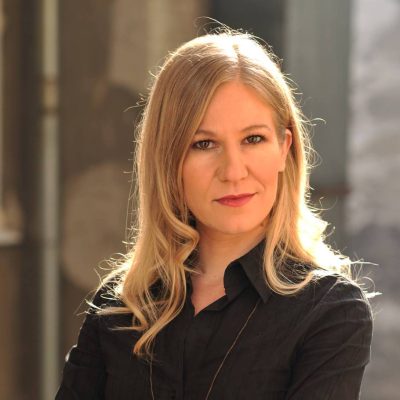
Tamara Nikolić
Ph.D. (Belgrade, Serbia) is Assistant Professor at the Department for Pedagogy and Andragogy at the Faculty of Philosophy, University of Belgrade and a reasearcher at the Institute for Pedagogy and Andragogy. She holds a Ph.D. in Adult Education from the University of Belgrade and M.A. in Human Relations from the University of Nottingham. In 2010 she enrolled in International Class at East Side Institute, based in New York, for training in radically relational, cultural approach to human development, community building and leadership. Being East Side Institute’s Associate ever since, she keeps deepening her interest in the intersections of play and performance, adult learning and community building, which she continues to pursue theoretically and practically. Her recent research involves topics such are leisure education, creative learning environments, drama and theatre in education, and the role of performance and improvisation in educational settings. As an educational professional, she teaches adult education related to leisure, community development, communication and media, play, creativity and drama. As a freelancer, she delivers trainings for trainers, mentors and other professionals in the field of education, designs and facilitates workshops, and engages in supervision and counseling for educators. As a lifelong learner, she recently obtained M.A. in Applied Theatre at Academy of Arts in Novi Sad. She co-authored the publication Let’s Play – a Manual for Drama Process. As a performance activist she advocates for performative approach to life and sees the play and performance as a way of engaging people in the critical issues of the world. At the core of her work as a scholar and educator is creating an environment for people to learn and grow through playful, philosophical, demanding, developmental, mundane and imaginative conversations and practices.
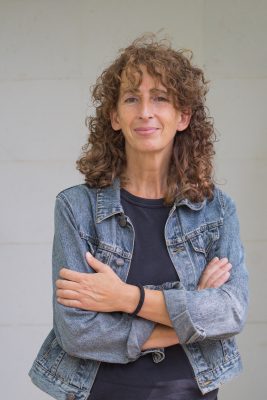
Sílvia Simon
is a professor of Physical Chemistry at the University of Girona and carries out research within the Institute of Computational Chemistry and Catalysis, mainly in the study of hydrogen bonding. Having been involved in Science Communication for more that 15 years as the Director of the Chair for Science Culture and Digital Communication, she has led many research and innovation projects related to Communication of Research, Women and Science, Science Dissemination, and others.
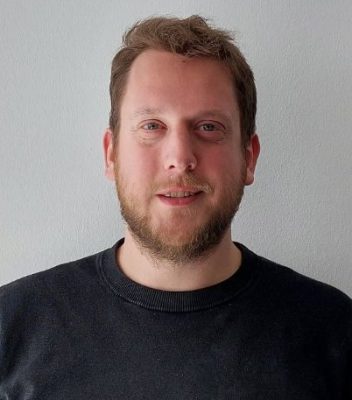
Tomislav Rožić
works at CARNET on information systems used in Croatian education. He is the manager of national online enrollments in secondary schools. In addition, for the last three years he was the project manager of the Erasmus+ project “DOTS – Development of transversal skills in STEM”, which has just ended. His business interests are project management and product ownership, and he is particularly interested in innovative teaching methods in education. He is a Croatian language teacher and linguist by profession. In his free time, he likes to make music and play videogames.
